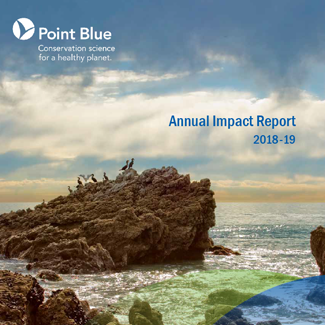
Annual impact report released by Point Blue
The Point Blue Conservation Science organization’s annual impact report, released at the end of September, shows how targeted conservation efforts have proven successful. The organization has more than 160 scientists as members, as well as expanding habitat restoration and education teams. It relies on data to benchmark and measure the impacts of climate change and human activities on ecosystems, but also to take into account the effectiveness of conservation efforts. In order to make ground-breaking assessments – whether tracking atmospheric carbon dioxide levels, or species in decline or recovery – access to robust, long-term datasets is essential. Point Blue’s eleven unique datasets each contain more than twenty years of data. Each of these datasets reflects thousands of hours of painstaking data collection in the field and the enduring commitment to rigorous data management.
Point Blue has used its data to achieve significant conservation wins. For example, Point Blue:
- helped to establish three National Marine Sanctuaries and an International Biosphere Reserve in Central California
- protected the Mono Lake ecosystem from water over-draughts
- expanded its climate-smart restoration program (STRAW) that now completes more than 60 restorations annually
- created federal protection for the Western snowy plover under the (U.S.) Endangered Species Act
- helped to establish the Ross Sea as the world’s largest Marine Protected Area.
Point Blue’s marine observations and modeling are also being used to encourage ships to slow down and to adjust shipping lanes away from feeding hotspots to protect whales. To learn more about its latest actions, read Point Blue’s newly released annual impact report.